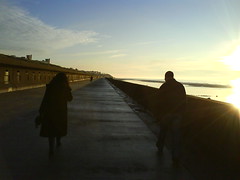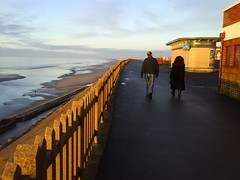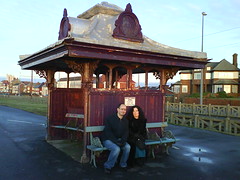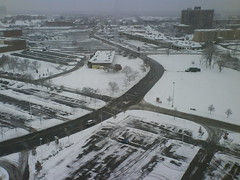Kit Fournier works as a senior diplomat for the US in London in 1956, ostensibly enjoying a “special relationship” with the Brits and fighting a Cold War against Russia. But things are never so simple... Amongst other plots and counterplots, the US don't like the UK's attempts to have their own hydrogen bomb. It just so happens Kit's cousin's husband is one of those doing the attempting. Trouble is, Kit has always had a thing for that cousin...
The Envoy is a thrilling read, filled with grubby detail and observation in the manner of good le Carre. In fact, there's a lot here that's familiar from the Smiley books: the “tradecraft” of codes and of chalk marks and dead-drops in Kensington Gardens, the olive oil drunk to line the stomach before boozing with the Russians. There's a lot on the mechanics and political pressures of day-to-day spy work.
“Mice, thought Kit. Not tiny rodents, but MICE: money, ideology, coercion, excitement. Basic training for case officers: the four means that you use to recruit an agent or persuade someone to betray their country. MICE, he thought, how apt an acronym. It wasn't that simple. The 'E' could stand for ego as well as excitement, but ego could cause problems – like bragging. Of the four, most section chiefs preferred 'money'. When you get someone to take a bribe you have a paper trail for blackmail, then you get 'coercion' as a bonus – and that's even better than greed.”Like le Carre, the author's biography suggests he might have practical experience of this kind of stuff. I find myself, having read the book, reading between the lines and wondering how much Wilson shares Kit's own frustration with the country of his birth – the country he fought for – when compared to “civilised Europe”.Edward Wilson, The Envoy, p. 17.
“Edward Wilson served in Vietnam as an officer in the 5th Special Forces. His decorations include the Bronze Star and Army Commendation Medal for Valor. Soon after leaving the army, Wilson became a permanent expatriate. He formally lost US nationality in 1986. Edward Wilson is a British citizen but has also lived and worked in Germany and France. For the past thirty years he has been a teacher in Suffolk. The author enjoys sailing and has a twenty-foot sloop at Orford on the River Ore. Arcadia also published his first novel A River in May.”(The book sets the covert British nuclear programme at Orford Ness, and Kit spies on it from his boat.)
America is puerile and brash in the book: there's much made of its embarrassingly unsophisticated view of art and music, as the symptoms of homosexuality. And I don't think that the British were any less suspicious of gayness; the intelligence service's treatment of Alan Turning being a case in point. Another character remains closeted – Kit blackmails him - because the British won't tolerate his being gay.
Otherwise, Wilson's novel is crammed full of choice historical detail. Prime Minister Eden is sozzled on amphetamines as he gets manic over Suez. Just like in From Russia, With Love, one of the characters can reveal the truth about the secret killing of Beria. And Kit is responsible for the death of Lionel 'Buster' Crabbe – and the ensuing scandal, which I'd seen detailed in the IWM's Ian Fleming + James Bond exhibition earlier this year.
The acknowledgements oddly then claim that, “A few real names are used, but no real people are portrayed”. Which again isn't true: Joseph Kennedy storms in as early as page 6, after five pages all about his daughter.
I also think Wilson is a little disingenuous with his history. His intelligence agents are always bang on the nose with their secrets, as if they've got access to history books from decades in the future. Le Carre is much better at the sense of agents gleaning scant fact from the fug of misinformation and plain confusion (the hard work very like the kind of proper journalism Nick Davies pines for in Flat Earth News, which I shall write about later this week).
Yet I'm incredibly envious of the vivid, complex and rich 1950s Wilson conjures here, the compromises and moral dilemmas on every page, the way he has us siding with Kit despite his being such a relentless arsehole. Kit is selfish to the point of flagrant treason, vicious to the point of hospitalising a bloke he has already entirely outwitted, and a coward when running away from battle or a comrade being horribly killed. Yet we're with him all the way – perhaps just to see how long he can keep ahead of those who are clearly going to kill him.
“This is not the kind of escapist spy thriller generally found on the bestseller lists. Wilson's story has no heroes. It's a sophisticated, convincing novel that shows governments and their secret services as cynically exploitative and utterly ruthless.”It's busy, it's exciting, it's bleaker than an unhappy goth, it's got things to say about the selfish motives and unlikely happenstance that influence the fumbling forward of history. And however much a shit Kit might be, he still believes in some kind of rules.Susanna Yager, “Cynically exploitative and utterly ruthless”, The Daily Telegraph, 14 March 2008.
“Perhaps Vasili was right: Russians lose their soul when they leave Russia. That, thought Kit, was the good thing about being an American. If you wanted to find your soul, the best way to find it was to get the hell out of the country. They all did it: Whistler, Henry James, Josephine Baker, Eliot, Hemingway, Pound, Fitzgerald – even the Duchess of Windsor. And when they did go back, they usually killed themselves or ended up, like Pound, in St Elizabeth's insane asylum. Pound, thought Kit, had got off too lightly. The poet should have been shot for turning traitor and siding with fascists. Still, there's nothing wrong with being a traitor if that's what you think you've got to do – but in the end, they have to shoot you and you shouldn't complain. The rules are clear and simple.”And then it does two things which really, really annoyed me. About page 200 (of 268) there are two major revelations about Kit which throw the story into a whole different gear, and which are at best a little elegant, at worse just plain cheating. The plot twangs off at an angle due to a past illness and a document he keeps at his home, neither of which have been mentioned before. It's like a Whodunnit where the murderer is someone we only meet – or hear of – in the final chapter.Wilson, pp. 172-3.
And the final chapter shows us the fall-out that falls on Kit and brings us forward to the eighties. It denies any chance of a sequel and ties the whole thing up. But it breaks the rules of the le Carre shocker, and dares try a happy ending. He should die! He should suffer some bizarre, gruesome “accident” the press can't quite explain, like all those who've suffered his actions.
Kit said it himself: the rules are clear and simple.


























